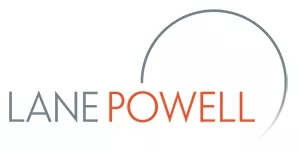The International Maritime Organization ("IMO") has directed its focus on the analysis of the potential regulatory scheme that must be implemented to address the emerging technology of autonomous and remotely controlled commercial ships. The IMO Strategic Plan for the years 2018 through 2023 contains a Key Strategic Direction to "integrate new and advancing technologies into the regulatory framework."1 Specifically, this Key Strategic Direction entails weighing the benefits of new technology against safety concerns, security, cybersecurity, environmental risks, costs, and the facilitation of international trade. Commensurate with that goal, IMO is conducting an analysis of all applicable treaties in assessing the regulation of Maritime Autonomous Surface Ships ("MASS"). 2 Three IMO standing Committees, including the Marine Safety Committee ("MSC"), the Legal Committee ("LGL"), and the Facilitation Committee ("FAL") have commenced a "Scoping Exercise" to analyze MASS against the backdrop of the international treaties that govern the world's commercial shipping industry.
Autonomous and Remotely Controlled Commercial Shipping Exists
Remotely controlled and autonomous commercial vessels are more than a distant pipedream and are in operation today. Accordingly, the IMO Scoping Exercise is timely. For example on December 3, 2018, Finferries, the ferry system of Finland in conjunction with private industry, demonstrated the FALCO, the world's first fully autonomous car ferry. The FALCO's maiden voyage between Pargus Finland and Nagu was completely autonomous and carried 80 passengers. On the return voyage, the FALCO was remotely controlled by an operator from a shore-based facility.3
The MAYFLOWER is a fully autonomous trimaran under development that is designed to sail the North Atlantic and trace the voyage of the Pilgrims. The 100 foot research vessel is powered solely by wind and solar technology and will carry drones on board. 4
The YARA BIRKELAND is a battery powered electric inland open top container ship with a capacity of 120 TEU (Twenty-Foot Equivalent Units). The YARA BIRKELAND will have "zero emissions" and is expected to be fully autonomous by 2022.5
The Scoping Exercise-4 Degrees of Vessel Autonomy
The IMO Scoping Exercise recognizes four (4) Degrees of Autonomy for MASS:
- Degree 1: Partial automation and the crew can take over control of the vessel at any time.
- Degree 2: The ship is controlled from a remote location, but a crew is onboard and ready to assume control as necessary.
- Degree 3: The vessel is controlled remotely from another location and there is no crew on board.
- Degree 4: This is a fully autonomous vessel controlled by artificial intelligence that makes decisions and controls actions.
International Treaties Considered by MSC, FAL and LGL Committees
During the course of the Scoping Exercise, the MSC, FAL, and LGL Committees considered the impact of the Four Degrees of MASS autonomy on international shipping treaties and shipping traffic. The MSC Committee examined the impact of autonomous shipping against the requirements of several treaties, including but not limited to, the Safety of Life at Sea ("SOLAS") Convention; the Collision Regulations; and the Search and Rescue Convention ("SAR"). The LGL Committee evaluated the impact of MASS on 23 Treaties. The FAL Committee analyzed MASS with respect to the Convention on Facilitation of International Maritime Traffic ("FAL") and the foreseeable challenges that would likely arise from autonomous ships.
MSC Committee Conclusions After Scoping Exercise
The MSC Committee completed the Regulatory Scoping Exercise on May 25, 2021 at the 103rd Session.6 MSC Committee identified high priority issues for future work and made recommendations:
- The IMO and 174 Member States should create a "MASS Code" to consider all 4 Degrees of shipping autonomy.
- Internationally accepted MASS terminology and definitions for MASS must be created.
- The identity, responsibility, and definition of any crew aboard a partially autonomous or remotely controlled vessel must be specifically defined.
- The MASS should determine whether the shore-based Remote Control Station and Operators are considered seafarers.
- The MASS Code should specifically address issues of firefighting, cargo care, stowage, watchkeeping, search and rescue and other safety issues.
The Scoping Exercise Reports of the LGL Committee and FAL Committee are expected at some point later this year.
Footnotes
1. https://www.ship-technology.com/news/imo-assembly-adopts-strategic-plan-2018-2023/
2. https://www.imo.org/en/MediaCentre/HotTopics/Pages/Autonomous-shipping.aspx
5. https://en.wikipedia.org/wiki/MV_Yara_Birkeland
6. https://www.imo.org/en/MediaCentre/PressBriefings/pages/MASSRSE2021.aspx
Originally published by ATLP
The content of this article is intended to provide a general guide to the subject matter. Specialist advice should be sought about your specific circumstances.

